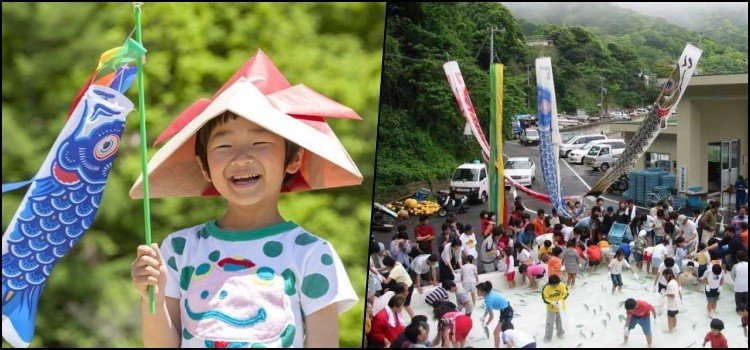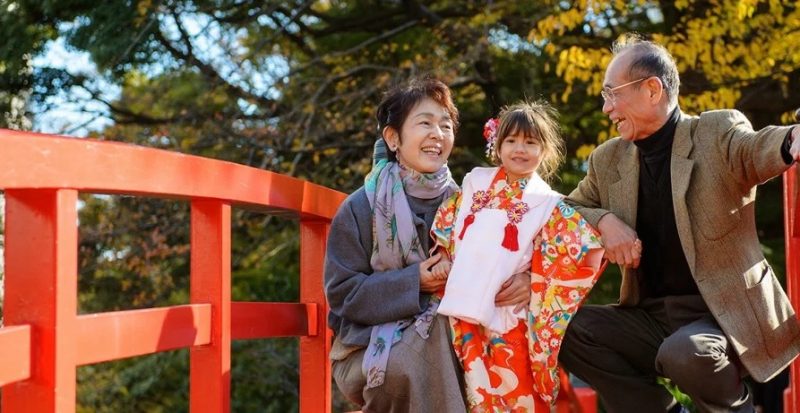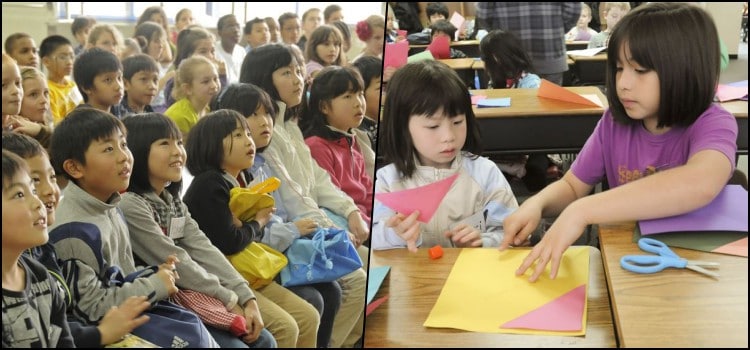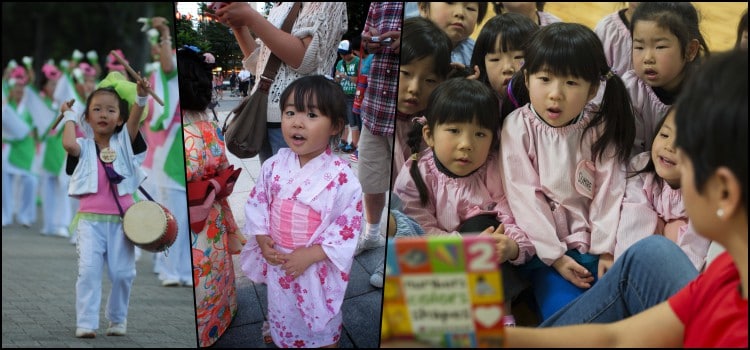Children are the future of any nation! For a good result, the government and parents need to do their part in raising children. How are these children educated? What do they usually do on a daily basis? What's your behavior? In this article, we will see several curiosities about the upbringing and development of Japanese children.
The number of Japanese children is falling every year in Japan. Research indicates a figure below 20 million children under the age of 16. One of the major culprits is the couples' lack of interest in having children. Raising and educating children is expensive in Japan, which exceeds $600,000, 72% of couples think about it.
In addition, many Japanese children end up being educated to be the successor of the family. Many end up lacking individuality or suffering a lot of pressure from the country and society. The Japanese government tries to get around the problem through subsidies and aid, but to no avail.
Índice de Conteúdo
The development of Japanese children
We shouldn't just talk about the problems in raising children. This article is especially dedicated to Japanese children who deserve to be highlighted for their great effort in society. Japan always expects its children to have experiences and develop certain skills.
Japanese parents who really care about their children make an effort to buy time and develop the child's mind with games and sports. Even Japanese TV entertainment often develops the child's mind with complex animations like Detective Conan.
Children are encouraged from an early age to form pairs between boys and girls, the elderly and young people and children of different ages. The objective of these activities is to create a social relationship between these people to overcome the problems that adolescents face. Unfortunately, this has not always had good results.
Research indicates that Japanese mothers have a harmonious relationship with their children. While American mothers usually give orders, Japanese mothers try to negotiate the matter with the child. This sounds great, but this relationship ends up molding people who are dependent and unprepared to face the world.
Some parents are actually absent, dropping their kids off at daycare or even paying people to take care of their kids (rich families often do this). Others simply leave their 6-year-olds alone at home or with older siblings. The relationship between siblings ends up being something quite strong, many grow up with the care of a brother.
The behavior of children in Japan
Young children are often given free reign and allowed to do as they please. They tend to be noisy in public places. Most Japanese children only learn discipline in schools and not from their parents.
Japanese children tend to be well educated. If a child misbehaves, often the parents are more to blame than the child. Japanese mothers generally do not scold their children and try to train their children as much as possible through encouragement and praise. As punishment, they show their displeasure with a mild reprimand or threat of exclusion.
Some mothers often leave their children locked out of the house when they do something wrong. You can see the children's attachment to wanting to go back into the house, some are willing to do anything. Attitudes like this are different from the traditional punishments and beatings we were used to taking.
From childhood children are taught that inside is safe and outside is dangerous. That must be why some Japanese are afraid of different things or going against the system.
Children in Japan are also independent. There are children as young as 6 who take bus trips alone across the country to their grandparents' homes. Nine-year-old girls often take trains to go to theme parks alone. Of course, before this independence, they learn everything from their parents and in schools.
Japanese children's problems
Things like games, cell phones, and the internet have disrupted the social development and communication of Japanese children. Research indicates that Japanese children tend to watch more television than American children.
Students are often busy with after-school activities. Some end up dedicating themselves too much to some activities or duties and forget about fun and free time to enjoy with friends. Despite the sports activities, the physical development of children has fallen more and more.
It is quite complicated to write an article without a specific subject. I hope it wasn't that confusing, during my research there was a lot of information to pick up, I tried to summarize as much as possible and pick only the interesting facts. Other more detailed and specific articles you can find on the site.
We appreciate the comments and shares. For more details, also read:










